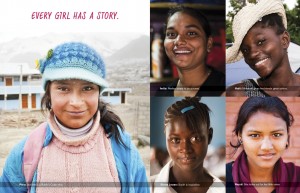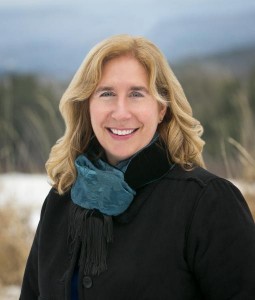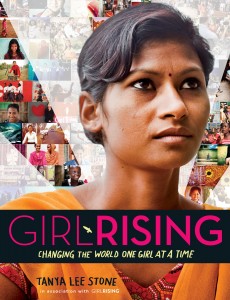
Girl Rising
About This Project
Story Transcript:
Heather McElhatton: I’m Heather McElhatton, and this is A Beautiful World
Tanya Stone: You know, there has been so much turmoil and negativity lately, I’ve been looking for moments to find beauty, and I’m finding it in the voices and faces of people who are fighting for anything that they believe in to be good and true.
Heather McElhatton: That’s Tanya Lee Stone, author of GIRL RISING, a book that’s part of a global movement called GIRL RISING that empowers girls all around the world and helps them get educations.
Tanya Stone: This is it. Right here. This is what moves me. This is what I’m passionate about.
Heather McElhatton: Girl Rising began in 2013, when a group of filmmakers were asked to make a movie about how to end global poverty. They had no idea what the answer was. Think about it – it’s a pretty big question. But upon going out and collecting data from leaders around the world in health, commerce, education and energy, they learned the single most powerful way to end global poverty.
To educate girls.
Martha Adams: (Prodicer of Girl Rising) When you educate girls, incredible things happen. Infant mortality goes down, literacy goes up, crop yields go up, national security improves, gross GDP improves and suddenly your nation is competing on the global market.
Heather McElhatton: Educating girls fights global poverty, but poverty keeps millions of girls from getting educations. School is not free in more than 50 countries; and girls like Suma, featured in the film GIRL RISING and in the book, is a “Kamlari” or bonded servant in Nepal.
SUMA: I write songs to remind myself that my memories are real, because there is so much sadness. Both my parents have been bonded Kamlari. You have to bond yourself to a master, or how will you live?
Heather McElhatton: Suma had to clean the house, wash the dishes and go to the forest to fetch firewood. she had to tend to the goats and mind the children. Then she met a schoolteacher called Bimal Sur.
SUMA: He changed my life. Bimal Sur convinced my master and mistress to enroll me in a night class. All of us would gather after work, and learn to read and write. I loved that class so much. It was run by social workers for girls just like me. Kumlaris.
Heather McElhatton: Practice of Kumlari has been illegal in Nepal since 2000, but now with help from girls like Suma it’s finally coming to an end. For Suma, it’s not enough that she’s free, she wants to help free other girls like her.
SUMA: I’ve seen where change comes from. When it comes, it’s like a song you can’t hold back. Suddenly there’s a breath moving through you, and you’re singing, and others pick up the tune, and start singing too. A sweet melody goes out into the world and touches the heart of one person, then another and another.
Tanya Stone: There are so many issues on the table right now, to see the forward movement of people who care about change and who care about their fellow citizens, is a beautiful thing.
Heather McElhatton: You can find out more about Girl Rising and ways to get involved online at www.abeautiful.world
ABOUT THE BOOK:
Girl Rising
Changing the World One Girl at a Time
Wendy Lamb Books/Penguin Random House, Valentine’s Day, 2017.
Worldwide, over 62 million girls are not in school. But one girl with courage is a revolution.
Girl Rising, a global campaign for girls’ education, created a film that chronicled the stories of nine girls in the developing world, allowing viewers the opportunity to witness how education can break the cycle of poverty.
 Now, award-winning author Tanya Lee Stone deftly uses new research to illuminate the dramatic facts behind the film, focusing both on the girls captured on camera and many others. She examines barriers to education in depth—early child marriage and childbearing, slavery, sexual trafficking, gender discrimination, and poverty—and shows how removing these barriers means not only a better life for girls, but safer, healthier, and more prosperous communities.
Now, award-winning author Tanya Lee Stone deftly uses new research to illuminate the dramatic facts behind the film, focusing both on the girls captured on camera and many others. She examines barriers to education in depth—early child marriage and childbearing, slavery, sexual trafficking, gender discrimination, and poverty—and shows how removing these barriers means not only a better life for girls, but safer, healthier, and more prosperous communities.
Links
http://www.tanyastone.com/girl-rising.html



